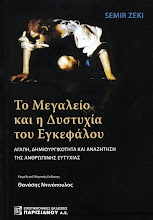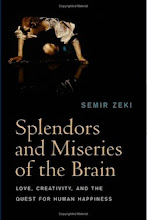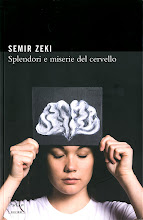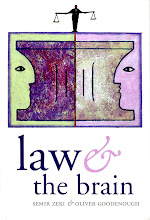Friday, May 4, 2012
Anatole France and reductionism
The glib and shallow criticism of much in cognitive neuroscience, and especially in neuroesthetics, as “reductionist” is a facile rallying point for many who have a hatred for our subject because they seem to fear it so much.
But those who use this criticism so commonly should be more consistent, and extend their pejorative use of the term to the arts and the humanities as well. Yet I have not heard anyone denounce Mondrian because of his reductionist approach, nor have I heard any criticism of Clive Bell’s insightful question about what is common to all art on the grounds of reductionism.
Here, I want to offer those who hate neuroesthetics so much the chance to get their adjectives to work to denounce a literary work which is perhaps the ultimate in reductionism – Anatole France’s fable of a Persian king. It occurs in Chapter XVI of Les Opinions de M. Jérôme Coignard, under the title of “L’Histoire”. I read it years ago and was much taken by it, perhaps because I am a reductionist. I reduce it further here, since I summarize what is already a short story.
On acceding to the throne of Persia, a young king assembled all the academicians of his realm and charged them with writing a detailed history of mankind, that he may learn from it to become a wise ruler.
The wise men deliberated and returned after twenty years with twelve camels, each carrying five hundred volumes. But the king could not find the time to read so many volumes, and tasked them with reducing the number of volumes “to the brevity of human existence”.
The academicians worked for another twenty years and returned with fifteen hundred volumes. But the king said, “I am getting old and cannot read all these volumes”.
The academicians returned after ten years with five hundred volumes but the king asked them to shorten it further so that he could learn, before dying, human history.
After five years, a lone academician carrying a single volume arrived at the palace. “Hurry up” an officer told him, “the king is dying”. The king looked at the academician and said, “So I shall die without knowing human history”.
“Sir”, replied the academician, “I can summarize it for you in three words: – they are born, they suffer, they die.”
Interestingly, Joseph Conrad, in the Notes to his novel Chance, wrote the following: “The history of men on this earth since the beginning of ages may be resumed in one phrase of infinite poignancy: They were born, they suffered, they died.... Yet it is a great tale!”
But Conrad also added, “But in the infinitely minute stories about men and women it is my lot on earth to narrate I am not capable of such detachment.”
Do I hear them shouting “Literary trash”? Do I hear them screaming, “Reductionists”?
Or do they reserve this only for neuroesthetics?
Subscribe to:
Posts (Atom)









 Contact us
Contact us